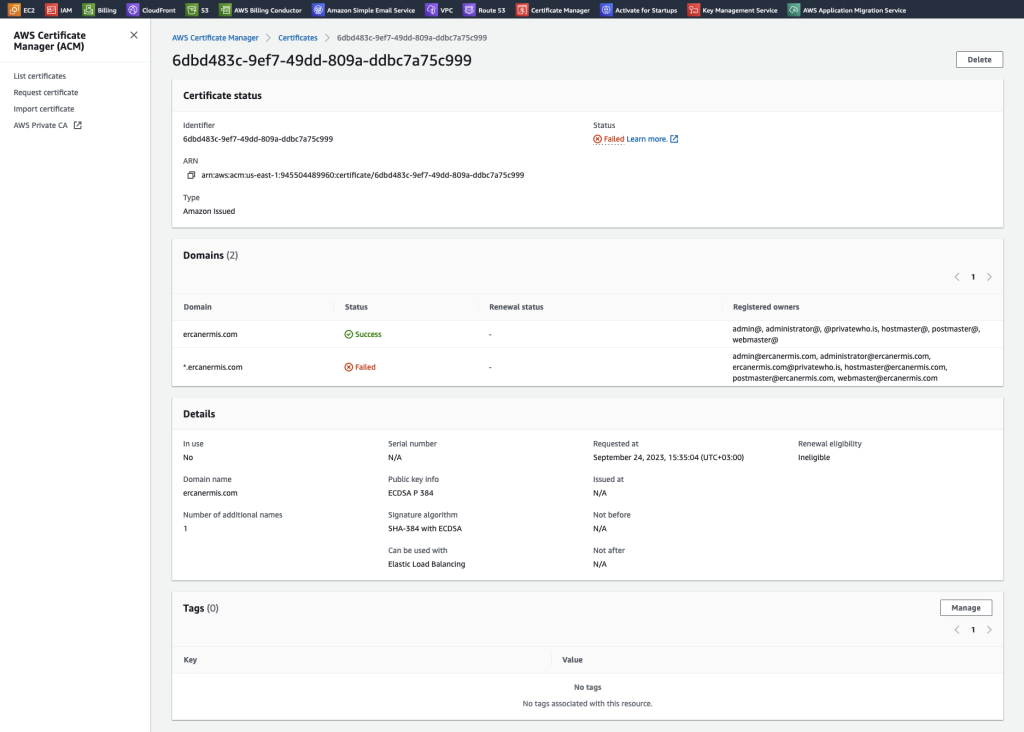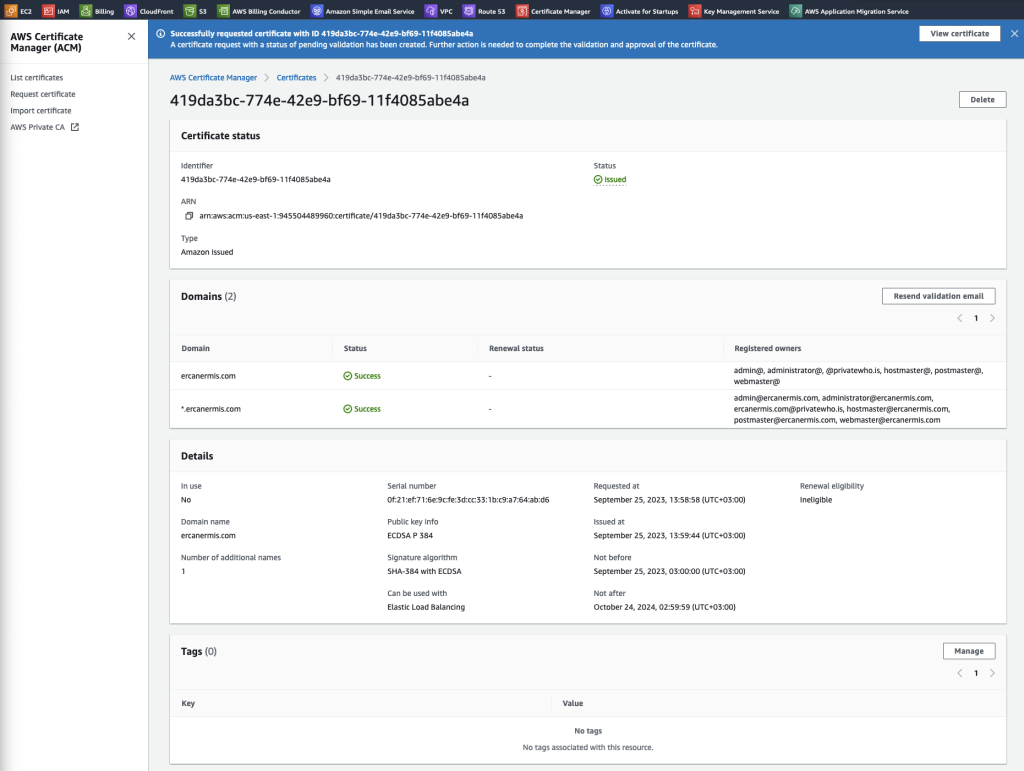The digital world thrives on security and trust. One of the foundational aspects of this trust is the SSL/TLS certificate, the backbone of HTTPS. As the internet matures, so does the need for improving the certificate issuance process. Enter the CAA (Certificate Authority Authorization) DNS record.
What is a CAA DNS Record?
CAA, or Certificate Authority Authorization, is a type of DNS record that allows domain owners to specify which Certificate Authorities (CAs) are allowed to issue certificates for their domain. In essence, it gives domain owners a say in who can and cannot issue certificates for their domains.
For instance, a simple CAA record might look like this:
example.com. CAA 0 issue "amazon.com"
example.com. CAA 0 issue "comodo.com"
example.com. CAA 0 issue "letsencrypt.org"This means only Let’s Encrypt is authorized to issue certificates for example.com.
Why Do We Need CAA DNS Records?
- Enhanced Security: CAA records help protect domains from mistakenly being issued rogue or misissued certificates. By specifying a list of authorized CAs, domain owners can reduce the risk of man-in-the-middle attacks.
- Control: CAA records give domain owners greater control over their SSL/TLS certificates. If a domain owner only trusts certain CAs, they can ensure only those CAs issue certificates for their domain.
- Audit Trail: If a CA receives a request to issue a certificate for a domain that has a CAA record not listing that CA, the CA will document the request and notify the domain owner, providing a trail of any unauthorized certificate requests.
Pros of Using CAA DNS Records:
- Prevention of Unauthorized Certificates: By specifying which CAs can issue certificates, you can prevent unauthorized entities from mistakenly or maliciously obtaining a valid certificate for your domain.
- Flexibility: CAA records can be set for each subdomain, offering granularity. For example, you can have different CAs for
blog.example.comandshop.example.com. - Compatibility: CAA checking is now mandatory for all CAs. This means any CA must respect the CAA records before issuing a certificate.
Cons of Using CAA DNS Records:
- Maintenance: If you decide to change your CA or use multiple CAs, you’ll need to update your CAA records accordingly.
- Propagation Delays: Like all DNS changes, updates to CAA records can take time to propagate, which might delay the issuance of new certificates.
- Potential for Misconfiguration: Incorrect CAA records can prevent legitimate certificate issuance.
What Were We Doing Before?
Before the adoption of CAA records, there was no standardized method for domain owners to express their preference for certificate issuers. This means any CA could issue a certificate for any domain, as long as they could validate ownership. This left room for errors, misissuances, and potential security vulnerabilities.
A Practical Example: AWS ACM and CloudFlare
Let’s say you’re trying to create an SSL certificate via AWS ACM for ercanermis.com and *.ercanermis.com using the email validation method.
If ercanermis.com already has a CAA record set (for example, for another CA) but doesn’t have a wildcard setup on CloudFlare, you might run into issues. I’m saying CloudFlare because, I’m using for my DNS records management and other features. You can see the example below.


To resolve this, you would need to:
- Add a CAA record for AWS ACM (
amazon.com) for your domain on your DNS Manager like if it’s not on Route53. - Ensure that you also cover the wildcard subdomains if you’re trying to secure them.
You can see the CloudFlare records and AWS ACM successfully issued a bot domain for ercanermis.com and *.ercanermis.com.


Remember, if you have existing CAA records, adding a new one doesn’t remove the old ones unless you explicitly do so.
Conclusion
CAA records are a valuable tool in the domain owner’s arsenal for maintaining the integrity and security of their websites. While they add an extra layer of management, the security benefits, control, and peace of mind they offer often outweigh the cons.
As the digital landscape evolves, tools like CAA will become even more essential in ensuring a safe and trustworthy internet. If you’re a domain owner, it might be time to look into setting up CAA records for your domain.